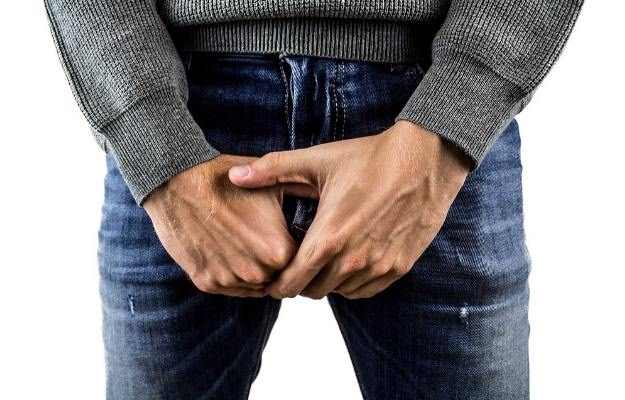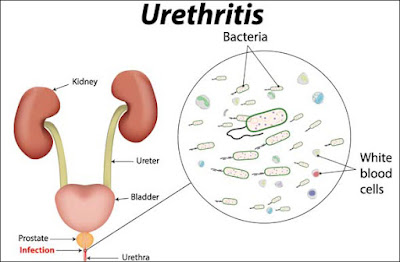What is urethritis? Urethritis is a condition in which the urethra, or the tube that carries urine from the bladder to outside the body, be...
What is urethritis? Urethritis is a condition in which the urethra, or the tube that carries urine from the bladder to outside the body, becomes inflamed and irritated. Semen also passes through the male urethra. Urethritis typically causes pain while urinating and an increased urge to urinate.
 |
| Urethritis in Men - Symptoms & Treatments |
Urethritis in Men: A Common STD
Urethritis is inflammation of urethra (the passage through which urine is passed from urinary bladder to the outside). Urethritis is fairly common STI (sexually transmitted infection) among sexually active males (more so among adolescence age group).
What are the symptoms of urethritis?
The common symptoms of urethritis are discharge from urethra and pain during micturition or urination. Commonly both of these symptoms are seen in case of urethritis. Generally there is no change in frequency of urination.
What are the causative agents of urethritis?
 |
| Urethritis in Male |
In many populations, the urethritis in men due to Clamidia. trachomatis, has declined to an extent due to effective chlamydial-control programs. HSV and T. vaginalis cause a small proportion nongonococcal urethritis (NGU) in men. Other causes of NGU are M. genitalium, Ureaplasma urealyticum, Ureaplasma parvum, coliform etc.
If a case of urethritis is suspected it should be properly investigated and treated appropriately without delay. At first, only Neisseria gonorrhoeae and Clamidia. trachomatis, should be tested with specific tests.
Urethritis in men is caused by many different types of organisms and ideal treatment would be to identify the infecting organism and treat it with specific antibiotics highly effective in treating such infection. But it may not be possible in every cases of urethritis. In practice after diagnosing a case of urethritis in men, initially Gram’s staining is done, if it reveals gonococci, treatment for gonococci is done and if it does not reveal gonococci than treatment for NGU (nongonococcal urethritis) is done.
Treatment of gonococci infection:
Gonococci infection is treated with cephalosporin antibiotics. Among cephalosporin antibiotics ceftriaxone (125 mg intramuscularly single dose), cefpodoxime (400 mg orally single dose) or cefixime (400 mg orally single dose) can be used.
If no diagnostic test is available or performed in a patient with urethritis, than treatment regimen should be single-dose regimen for gonorrhea (as above) plus azithromycin (1 gram orally as single dose) or doxycycline (100 mg twice a day for 7 days) for treatment of clamidial infection (C. tracomatis) which occurs frequently in patients suffering from urethritis due to gonococci.
If gonococci are not demonstrated by Gram’s staining, it should be treated as NGU (nongonococcal urethritis) like azithromycin (1 g orally in a single dose) or doxycycline (100 mg orally 2 times a day for 7 days).
How to treat recurrent cases of urethritis?
Recurrent cases of urethritis should be treated with the same regimen as before if they did not comply with the earlier treatment or if they are reexposed to same infection. If the patient was treated appropriately previously, than an intraurethral swab specimen and a first-voided morning urine sample should be tested (culture of the swabs and antibiotic sensitivity done). If compliance to the initial treatment can be confirmed and reexposure excluded (in persistent cases) the treatment should include metronidazole or tinidazole (2 gram orally in a single dose) plus azithromycin (1 gram orally in a single dose).
N.B.:- The sexual partner/partners (should be tested for gonorrhea and chlamydial infection) also should be treated with the same regimen as given to the male urethritis patient.






No comments